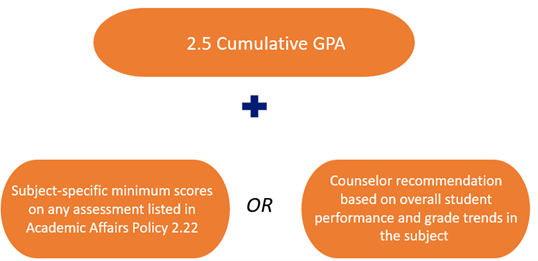BATON ROUGE, La. – Seeking to build on increased participation in dual enrollment courses among high school students despite the pandemic’s academic disruptions, the Board of Regents extended its current minimum standards for dual enrollment student eligibility, retaining as optional both ACT scores and counselor recommendations. Dual enrollment is defined as the enrollment of a high school student in a postsecondary course for which both postsecondary and high school credit may be earned.
Today’s action keeps the current eligibility requirements outlined below through Academic Year 2022-23:

“This extension is designed to both expand dual enrollment participation in our state and provide an opportunity for us to measure the impact of these changes,” said Commissioner of Higher Education Kim Hunter Reed. “We are encouraged that, even during a pandemic, we saw a slight increase in college in high school participation. That’s good news for our students.”
Before the COVID-19 pandemic, Act 128 of the 2019 Regular Legislative Session created the Dual Enrollment Task Force, charged with recommending a statewide framework to provide universal access to dual enrollment courses. In its first report to the Legislature, the group noted the minimum standards for student eligibility are complex and limit the number of students, especially minorities, who can participate. The report also highlighted that Louisiana was the only southern state within the 16 member states of the Southern Regional Education Board (SREB) requiring both a grade point average and a composite ACT score to be eligible to participate in academic dual enrollment.
This analysis, coupled with higher education’s response to pandemic cancellations of standardized tests last year, led Regents to adopt an interim eligibility policy in April 2020, which enabled colleges and universities to use additional methods for students to demonstrate readiness for dual enrollment. As a result, participation increased statewide from 21,994 students (Fall 2019) to 22,100 (Fall 2020).
“This is a great example of Regents continuing its laser focus on talent development by removing barriers and understanding policy implications on students,” said Board of Regents Chair Blake David. “Today’s action by this board acknowledges the success of the interim policy to drive more high school students towards dual enrollment – allowing these students to decrease their time to degree, make higher education more affordable for families, and maximize their chance for success.”
Regents also welcomed as its newest member Terrie P. Sterling, who was officially sworn in ahead of the Board’s committee meetings. Regent Sterling of Baton Rouge was appointed by Governor John Bel Edwards to fill the vacant at-large seat, with a term to expire in 2022. As CEO of a healthcare management services firm, Sterling focuses on planning and growth, leadership development, and executive coaching. She also serves as Chief Nursing Advisor for nDorse, a mobile and web-based software platform.
Last year, Regent Sterling served as Co-Chair of the Resilient Louisiana Commission. She is formerly the Chief Operating Officer of Our Lady of the Lake Regional Medical Center and holds a Bachelor of Science in Nursing from Northeast Louisiana University, a Master of Business Administration from Louisiana State University, and a Master of Nursing Science from Loyola University New Orleans.
The Board of Regents, a state agency created by the 1974 Louisiana Constitution, is a policy and advocacy board coordinating the activities of the state’s public higher education institutions. Members of Regents are gubernatorial appointees, chosen to serve six-year terms after receiving Senate confirmation. The sixteen-member, voluntary board includes two individuals from each Congressional District, as well as three members-at-large and a student member elected annually from the Council of Student Body Presidents. Regent’s Master Plan for Higher Education establishes a robust attainment goal calling for 60% of working-age adults in Louisiana to hold a degree or credential by 2030.
